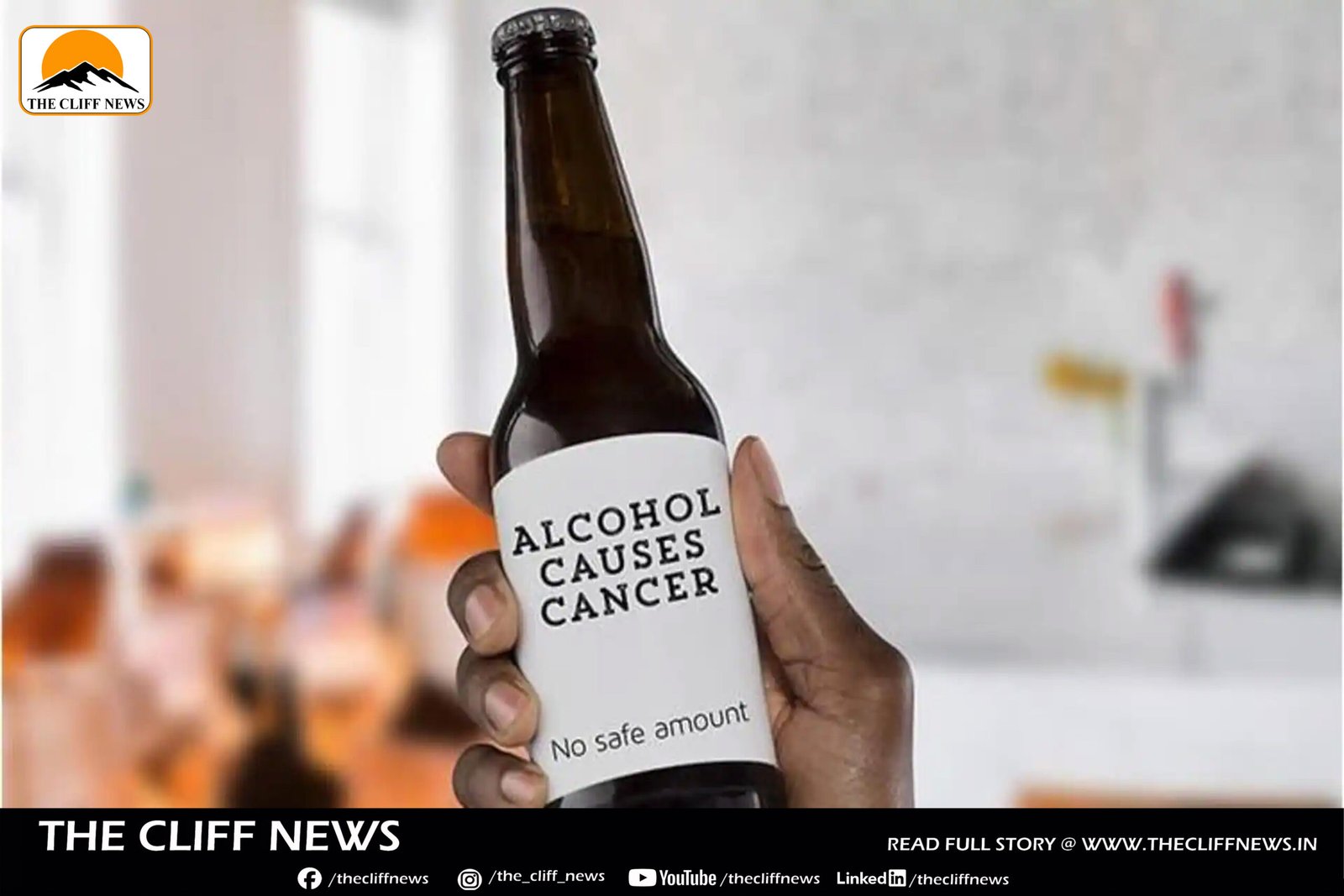Researchers from AIIMS Delhi have advocated for the implementation of strong, evidence-based cancer warning labels on alcohol bottles to curb avoidable cancer cases in India. Drawing inspiration from the country’s success with tobacco warnings, the researchers emphasized that alcohol, like tobacco, is a proven carcinogen, yet public awareness remains significantly low.
In an opinion piece titled “Expanding behavioural interventions through cancer warning labels in India: from cigarette packs to alcohol bottles”, published in Frontiers in Public Health on July 24, oncologists Dr. Abhishek Shankar, Dr. Vaibhav Sahni, and Dr. Deepak Saini from the Department of Radiation Oncology, Dr. BR Ambedkar Institute Rotary Cancer Hospital, AIIMS, Delhi, highlighted that adolescence is a critical period for the initiation and deepening of substance use, including alcohol. They asserted that behavioural interventions through warning labels could positively influence consumption habits, especially in Low- and Middle-Income Countries (LMICs) like India, where public health literacy and awareness about substance-related harm are still evolving.
The doctors pointed to alarming cancer trends in the country, citing a 36% rise in cancer incidence from 2012 to 2022 (from 1.01 million to 1.38 million cases). GLOBOCAN 2022 data showed approximately 1.41 million new cancer cases in India, with a five-year prevalence of 3.25 million and 916,827 total cancer-related deaths. According to GLOBOCAN 2020, alcohol-attributable cancer cases in India account for 4.7% of the total, with an age-standardized incidence rate of 4.8 per 100,000 people.
Further data from 2016 revealed that 6.6% of India’s Disease Adjusted Life Years (DALYs) were linked to alcohol consumption, second only to tobacco at 10.9%. The researchers also referenced the U.S. Surgeon General’s January 2025 advisory, which confirmed that alcohol consumption increases the risk of at least seven types of cancer — colon/rectum, liver, breast, esophagus, larynx, pharynx, and oral cavity — and this risk applies equally to all genders.
The opinion piece underlined the effectiveness of warning labels in modifying behaviour. Evidence from global studies suggests that alcohol cancer warnings can reduce consumption and lower people’s perception of its harmlessness. The researchers cited the Global Adult Tobacco Survey (GATS) 2016–17, which found a 16% increase in health awareness due to cigarette pack warnings. Notably, pictorial warnings were 50% more effective in motivating individuals to consider quitting.
They also discussed the nature of warning messages, distinguishing between loss-framed (emphasizing risks) and gain-framed (highlighting benefits of quitting) messages. While gain-framed messages have shown more promise in some studies, most research has focused on loss-framed warnings, especially in tobacco use. The authors suggested that a combination of both message types may be more effective, as behavioural change is often influenced by individual beliefs and perceptions.
Given India’s status as an LMIC, the researchers concluded that implementing cancer warnings on alcohol bottles could significantly influence consumer behaviour and contribute to reducing alcohol-related disease burdens, particularly cancers.



